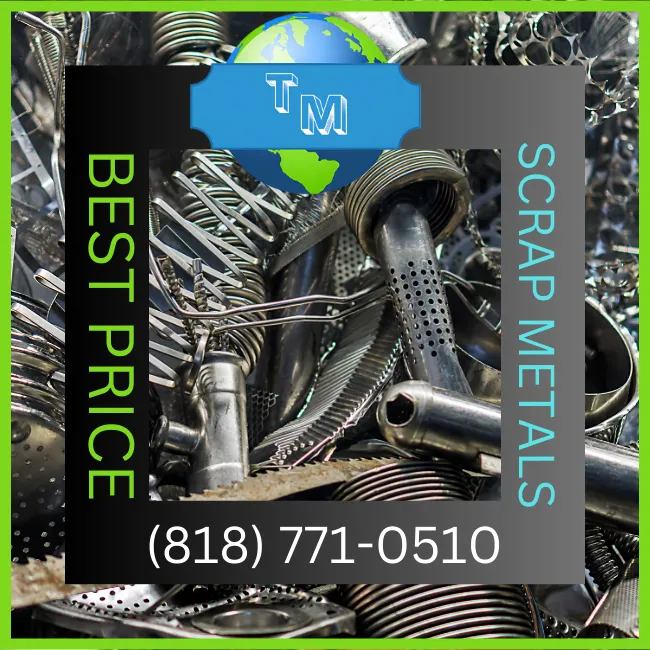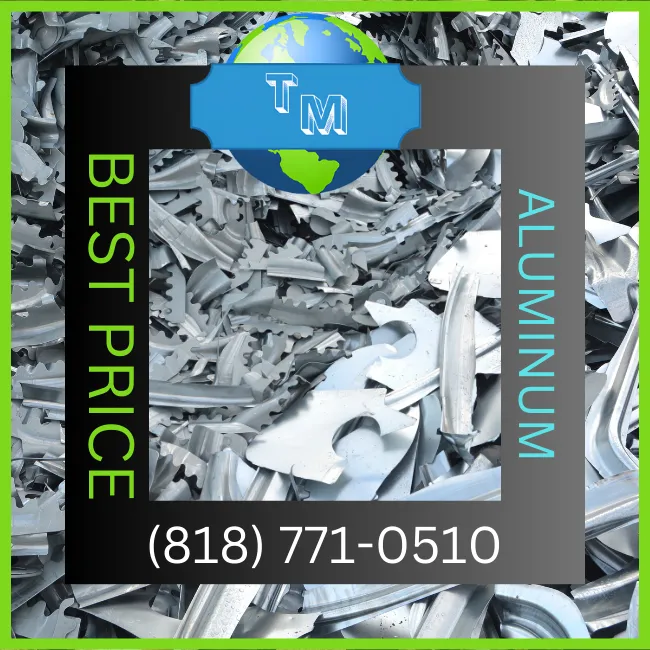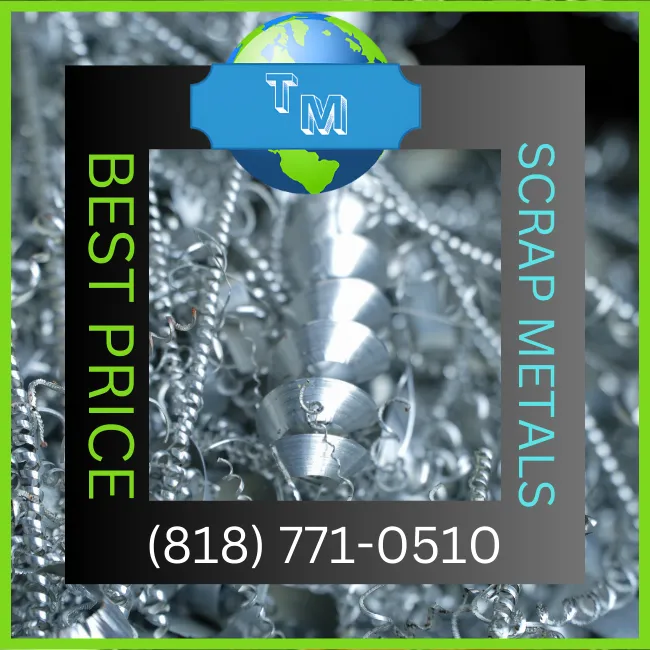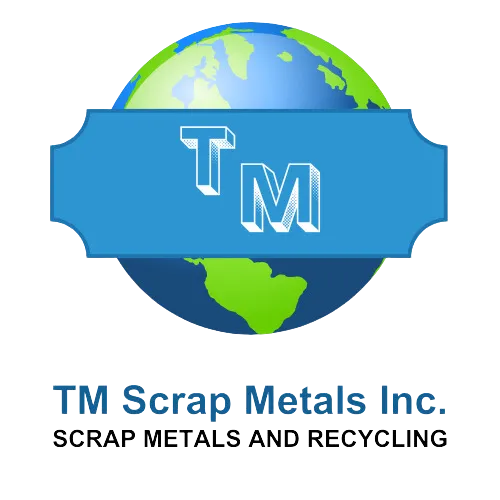Sponsored





Radiator Recycling in Sun Valley
Top Local Buyers For Aluminum, Copper & Brass Radiators
Need to recycle old radiators in Sun Valley? Whether from vehicles, HVAC units, or industrial systems, local recycling centers offer fair prices and fast service for aluminum, copper, and brass radiators. These professionals ensure eco-friendly processing and convenient drop-off or pickup options. Explore trusted radiator recycling services in Sun Valley today!
Radiator Recycling in Sun Valley: Why Hire a Professional Radiator Recycling Service
Cooling the Environment with Expert Radiator Recycling
The Importance of Radiator Recycling in Sun Valley
Radiator recycling in Sun Valley is becoming increasingly important as automotive and HVAC systems are updated or replaced. Radiators contain valuable metals such as aluminum and copper that can be effectively recovered and reused, making proper recycling both an economic and environmental necessity.
With Sun Valley's vibrant auto repair and construction industries, large volumes of used radiators accumulate. Professional recycling services help keep these items out of landfills and ensure that all recoverable materials are processed in a sustainable and eco-friendly way.
Why Hire a Professional Radiator Recycling Service
Hiring a professional radiator recycling service in Sun Valley offers numerous advantages. Radiators are often bulky and complex, containing a mix of metals and other materials. Trained recyclers have the tools and knowledge to dismantle and sort components safely and efficiently.
These professionals are also familiar with the latest environmental regulations, ensuring that the disposal of any non-recyclable components is handled legally and responsibly. Moreover, they can identify valuable materials and offer fair market compensation based on current prices.
Using a professional service reduces risks associated with handling sharp or corroded parts and provides peace of mind that the recycling process is being done correctly and efficiently.
Choosing the Right Radiator Recycling Partner in Sun Valley
When selecting a radiator recycling service in Sun Valley, look for licensed providers with a proven track record in scrap metal processing. Reputable companies will offer detailed evaluations, fair pricing, and comprehensive documentation.
Local recyclers are a great choice due to their familiarity with Sun Valley’s environmental initiatives and regional recycling protocols. They typically provide faster service and better customer support while contributing to community sustainability goals.
In conclusion, professional radiator recycling is a smart choice for anyone dealing with scrap radiators. It supports resource recovery, complies with environmental standards, and enhances the sustainability of Sun Valley.
TM Scrap Metals, Inc
Recycling Center

Google: 4.8 stars
Ferrous Metals Recycling, Non-Ferrous Metals Recycling
(818) 771-0510
11092 Tuxford St, Sun Valley, CA 91352
Website: www.tmscrapmetals.com




Crown Recycling Services
Google: 4.0 stars
Services: Construction & demolition recycling, wood and yard waste recycling
📞 (818) 768-4214
📍 9189 De Garmo Ave, Sun Valley, CA 91352
🌐 Website not listed
Ecology Auto Parts, Inc.
Google: 4.2 stars
Services: Auto parts recycling, metal recycling, tire recycling
📞 (818) 767-8336
📍 14036 Balboa Blvd, Sun Valley, CA 91352
SA Recycling
Google: 4.2 stars
Services: Scrap metal recycling, ferrous and non-ferrous metal recycling, electronic waste recycling, metal processing
📞 (818) 504-4140
📍 8250 Tujunga Ave, Sun Valley, CA 91352
Kramar Metals
Google: 4.5 stars
Services: Scrap metal recycling, industrial scrap metal recycling, metal processing, buying and selling of various metals
📞 (818) 767-4303
📍 8821 San Fernando Rd, Sun Valley, CA 91352
Radiator Recycling in Sun Valley
Fast, fair payouts for aluminum and copper radiators.
Recycle your radiators at our Sun Valley location for top cash today!
People Also Ask
Radiator recycling involves extracting valuable metals from used radiators found in vehicles, HVAC systems, and machinery. These radiators are typically made from aluminum, copper, and brass, all of which are highly recyclable. The recycling process not only helps reclaim these materials but also reduces landfill waste and supports the circular economy. Radiator recycling is an essential part of scrap metal recovery and environmental sustainability.
Recyclable radiators commonly contain aluminum, copper, brass, and steel. Copper and aluminum are the most sought-after due to their high market value and wide reuse in industrial applications. Some radiators also contain plastic or rubber components, which are removed before metal recovery. Proper separation of these materials ensures efficient recycling and maximizes the return on valuable metals.
Radiator recycling begins with inspection and separation of different materials. Non-metal parts are removed, and radiators are then cut down or shredded into smaller pieces. Mechanical and manual methods are used to separate copper from aluminum, and magnetic separators help isolate any steel. The clean, sorted metals are then melted and reformed into new raw materials for manufacturing, minimizing waste and energy consumption.
Most types of radiators can be recycled, including automotive, industrial, and HVAC units. The main limitation is the presence of hazardous substances like coolant or oil, which must be properly drained before recycling. Some older units may contain soldered or fused components that are more challenging to separate, but professional recyclers have the tools and processes needed to handle them safely and efficiently.
Yes, recycling radiators can be profitable due to the value of copper and aluminum. Radiators that are properly cleaned and separated can yield a higher return at recycling centers. The exact payout depends on current metal prices, the weight and purity of the materials, and whether the radiator is aluminum-only or a mixed-metal type. Stripping and sorting radiators before recycling enhances financial returns.
Radiator recycling helps reduce the need for new metal extraction, which saves energy and lowers greenhouse gas emissions. It also prevents potentially hazardous waste from entering landfills, especially if radiators are not properly drained. By reclaiming and reusing valuable metals, radiator recycling supports a sustainable approach to resource management and contributes to a cleaner, more efficient economy.
Sun Valley, CA: The Heart of Scrap Metal Recycling
The History and Evolution of Sun Valley
Sun Valley has a rich history that dates back to the early 20th century. Originally an agricultural area, it evolved into a hub for industrial activities as Los Angeles expanded. The post-World War II boom brought a surge of manufacturing and industrial businesses to Sun Valley, laying the groundwork for the community’s future as a center for scrap metal recycling.
Today, Sun Valley is a bustling urban area with a mix of residential, commercial, and industrial zones. Its industrial areas are home to numerous scrap metal recycling facilities, making it a go-to destination for businesses and individuals looking to recycle their metal waste.
The Importance of Scrap Metal Recycling in Sun Valley
Scrap metal recycling is not just a business in Sun Valley—it’s an essential part of the local economy and the broader effort to promote environmental sustainability. The recycling of scrap metal reduces the need for mining new metals, conserves natural resources, and lowers greenhouse gas emissions. Given the global demand for metals, recycling also helps stabilize prices and supply.
In Sun Valley, the scrap metal industry provides jobs, supports local businesses, and plays a crucial role in waste management. The area’s recycling facilities process thousands of tons of metal each year, turning what would otherwise be waste into valuable resources. This industry’s success in Sun Valley has also fostered a community that understands and values the importance of recycling.
Types of Scrap Metals Commonly Recycled in Sun Valley
- Aluminum: Widely used in packaging, transportation, and construction, aluminum is one of the most recycled metals in Sun Valley. It’s lightweight, corrosion-resistant, and can be recycled indefinitely without losing its properties.
- Copper: Known for its excellent conductivity, copper is highly sought after in the scrap metal industry. It’s commonly found in electrical wiring, plumbing, and electronics.
- Steel: A primary material in construction and manufacturing, steel is the most recycled material in the world. Sun Valley’s facilities process vast amounts of steel, from old vehicles to construction debris.
- Brass: This alloy of copper and zinc is commonly found in plumbing fixtures, radiators, and musical instruments. Brass is valued for its durability and resistance to corrosion.
- Lead: Often used in batteries and radiation shielding, lead is a toxic metal that must be recycled responsibly. Sun Valley’s recycling centers ensure that lead is handled and processed safely.
- Stainless Steel: This corrosion-resistant metal is used in a variety of applications, from kitchen appliances to medical instruments. It’s another common material processed in Sun Valley’s recycling facilities.
The Process of Scrap Metal Recycling in Sun Valley
The process of recycling scrap metal in Sun Valley is both efficient and environmentally friendly. It typically involves several key steps:
- Collection: Scrap metal is collected from various sources, including households, businesses, and construction sites. Many recycling centers in Sun Valley offer pick-up services, making it easy for residents and businesses to recycle their metal waste.
- Sorting: Once the metal arrives at the recycling facility, it is sorted into different categories based on type and quality. This step is crucial for ensuring that the metal is processed correctly and efficiently.
- Processing: After sorting, the metal is processed to remove any non-metallic materials, such as plastic, rubber, or wood. This often involves shredding the metal into smaller pieces to make it easier to handle.
- Melting: The shredded metal is then melted down in large furnaces. The melting process is carefully controlled to ensure that the metal is pure and free of contaminants.
- Purification: In some cases, the melted metal is purified to remove any remaining impurities. This step is especially important for metals that will be used in sensitive applications, such as electronics or medical equipment.
- Solidification: Once purified, the molten metal is poured into molds to create ingots, sheets, or other forms that can be used in manufacturing. These recycled metals are then sold to manufacturers, who use them to create new products.
Environmental Impact of Scrap Metal Recycling
Recycling scrap metal in Sun Valley has a significant positive impact on the environment. By recycling metals, the need for mining raw materials is reduced, which in turn decreases the destruction of natural habitats, lowers energy consumption, and minimizes pollution. The recycling process itself uses less energy compared to producing new metals from ore, resulting in a smaller carbon footprint.
Additionally, recycling scrap metals helps reduce the amount of waste sent to landfills. Metals take a long time to decompose, and by recycling them, Sun Valley helps reduce the environmental strain of waste management.
Economic Benefits of Scrap Metal Recycling
The scrap metal recycling industry in Sun Valley is not just environmentally beneficial—it also brings substantial economic advantages. The industry creates jobs at various levels, from collection and processing to sales and management. This contributes to the local economy by providing employment opportunities and stimulating business growth.
Moreover, recycling metals allows businesses to save on raw material costs. Recycled metals are often cheaper than newly mined ones, which helps manufacturers reduce production costs. This cost-saving advantage can be passed on to consumers, making products more affordable.
Challenges Faced by the Scrap Metal Industry
Despite its benefits, the scrap metal industry in Sun Valley faces several challenges. One of the main issues is the fluctuation in metal prices, which can affect the profitability of recycling operations. Additionally, the industry must deal with the improper disposal of non-recyclable materials, which can contaminate the recycling process and increase operational costs.
Another challenge is the need for continuous investment in technology and infrastructure. As environmental regulations become stricter, recycling facilities must upgrade their equipment and processes to meet these standards. This requires significant financial investment, which can be a burden for smaller businesses.
The Future of Scrap Metal Recycling in Sun Valley
Looking ahead, the future of scrap metal recycling in Sun Valley appears promising. As awareness of environmental issues continues to grow, so does the demand for sustainable practices like recycling. Technological advancements are also expected to play a key role in improving the efficiency and effectiveness of recycling processes.
In addition, the increasing global demand for metals, driven by industries such as construction, automotive, and electronics, will likely boost the scrap metal industry. Sun Valley, with its established recycling infrastructure, is well-positioned to meet this demand and continue its legacy as a leader in scrap metal recycling.
Conclusion
Sun Valley, CA, has established itself as a vital center for scrap metal recycling, contributing significantly to environmental sustainability and the local economy. Despite the challenges it faces, the industry’s future looks bright, with ongoing advancements in technology and an increasing emphasis on recycling. For residents and businesses alike, Sun Valley remains a beacon of responsible waste management and resource conservation.
References: Wikipedia


